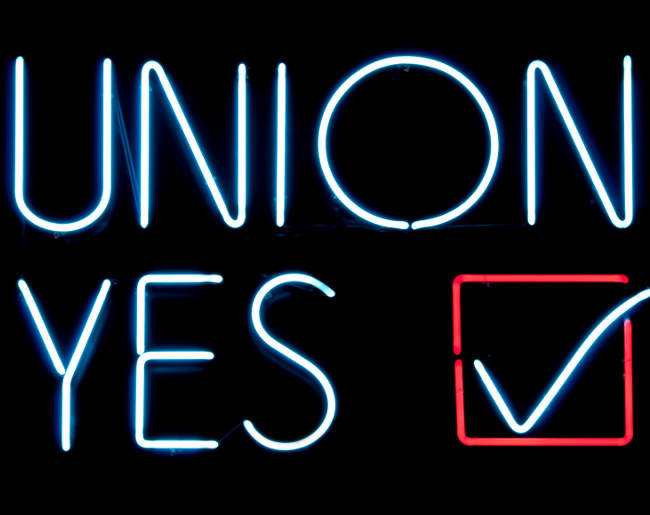Home > Insights > Publications > NLRB wishes employers a not-so-happy new year - Issues new election rules and overrules register guard

NLRB wishes employers a not-so-happy new year - Issues new election rules and overrules register guard
The National Labor Relations Board (NLRB) has amended its internal rules to speed up the union election process. The changes were made with one goal in mind: to make it easier for unions to organize your workforce. Starting April 14, 2015, the new rules shorten the current 42-day time period between the filing of a petition and the holding of an election to as little as three weeks. In addition to the shortened time frames, employers will be required to provide the union with employee email addresses and phone numbers in addition to their mailing addresses. In most cases, issues that are now decided before the election, like whose vote should actually count, will be decided after the election.
This change provides the union organizer with a significant advantage, as it will make it more difficult for employers to simply wait until the campaign to educate employees as to the pitfalls of organizing. And it will place a premium on employers engaging in union avoidance activities now to dissuade employees from filing an election petition. Employers must begin thinking about how they would respond to a union election petition, rather than waiting until something happens. We are available to discuss any questions you may have on how to develop this type of proactive approach.
A deeply divided NLRB also recently held that the National Labor Relations Act ("the Act") requires that employees allowed access to company email systems have a right to use the employer’s systems for non-business communications, including communicating about union organizing. The closely-watched case overruled the Board’s 2007 Register Guard decision. There are limits to this access right: (1) it applies only to workers who have already been granted access to their employer’s email system; (2) an employer may still prohibit the use of email for solicitation and other nonbusiness purposes during working time; and (3) an employer may be able to justify a complete ban on non-work use of email if it can point to special circumstances that make such a prohibition necessary. Employers retain the right to monitor their computers and email systems for legitimate management reasons such as ensuring productivity and preventing email use for purposes of harassment or other activities that could give rise to employer liability. Employers should, however, discuss any such monitoring with legal counsel, as it could make them vulnerable to allegations of unlawful surveillance of employees’ Section 7 activity or provide the knowledge element in a discrimination claim under the Act.
Notwithstanding the decision’s likely appeal, it is effective immediately, and therefore employers are urged to review any applicable email policies with legal counsel.
